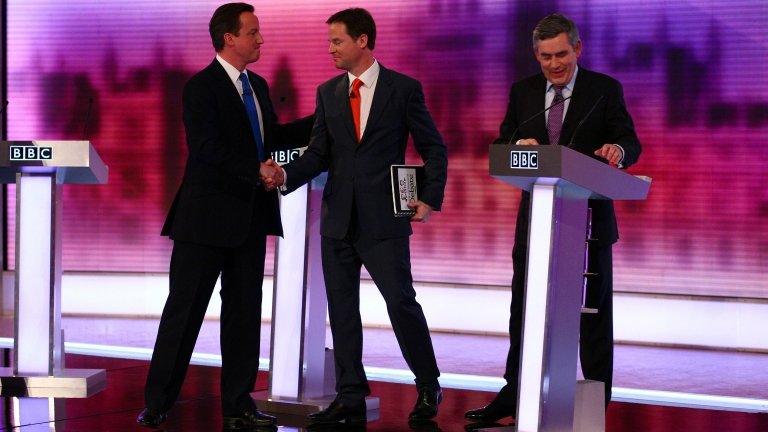Plaid Cymru 'could hold balance of power', Leanne Wood says
- Published
Leanne Wood wants the chance for Plaid Cymru to 'transform' Wales
Plaid Cymru MPs could help decide who takes power after next year's general election, party leader Leanne Wood has told its conference in Llangollen.
Leanne Wood said with Scottish nationalists and Greens they could "re-balance wealth and power" in the UK.
Ms Wood condemned "a cruel and damaging coalition" government at Westminster for having "no mandate from the people of Wales".
She accused Labour of failing to "stand up for Wales" against "Tory cuts".
Giving her keynote speech to the conference on Friday, Ms Wood said votes for Welsh and Scottish nationalists, as well as Greens, could decide who holds the balance of power at Westminster following the election in May 2015.
The independence campaign in Scotland had helped bring about the "demise" of two-party dominance by the Conservatives and Labour, she said.
But leaving Plaid Cymru out of proposed TV debates by the party leaders meant that "the truth will not be televised", she said.
Independence aim
Plaid would build on people's hopes, not play to their fears, she added.
The party is targeting the constituencies of Ceredigion and Ynys Mon between now and May, as it seeks to increase its number of MPs from the current three.
Ms Wood accused Labour of failing to stand up for Wales, claiming they supported austerity policies at Westminster which resulted in 70,000 people seeking help from food banks in Wales.
"We already have a third-rate devolution settlement, why should we settle for second-rate financial arrangements?" she asked.
Ms Wood added that she did not see further devolution as "the end of the journey for Wales" and wanted to "see us emerge as an independent country".
Despite polls consistently showing little support for an independent Wales, she predicted it would happen before many people expect.
"I believe in years, not decades," she said.

Analysis by Vaughan Roderick, BBC Welsh Affairs editor
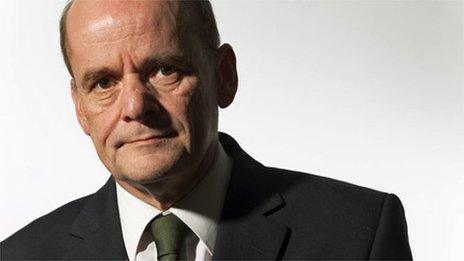
Leanne Wood's speech was intended to present Plaid Cymru's vision of Wales to a country which has warmed to devolution but is increasingly sceptical about independence.
The Plaid Cymru leader effectively conceded that the state of the Welsh economy effectively makes independence unaffordable in the short term.
Instead she emphasised the need to "rebalance" the British economy so that poorer areas such as Wales receive a larger share of the national income.
With a second hung Parliament possible after next May's general election Ms Wood outlined the sort of conditions Plaid Cymru might set in talks to form the next government.
It's clear that Plaid's demands would be economic as well as constitutional should an incoming government need the support of the party at Westminster.

'Very optimistic'
During the morning session, the party's economic adviser Eurfyl ap Gwilym called for the timetable for the development of Welsh devolution to "accelerate".
Praising new Welsh Secretary Stephen Crabb for saying "good things" on the devolution issue, Mr ap Gwilym said he was "very optimistic" about the future.
It was time for Wales to demand "full parity with Scotland" in the funding the Welsh government receives from the UK Treasury, he added.
Carmarthen East and Dinefwr MP Jonathan Edwards told the conference that the Scottish referendum on independence showed that the only way the "Westminster elite" would "ever take notice of Wales" was if the "people of our country support Plaid Cymru".
He said Plaid's political opponents would "never undermine our belief in the people of Wales".
It was time to persuade people that "Westminster is for the establishment elite: Wales can be ours", he added.
Meanwhile a motion calling for the voting age to be reduced to 16 has been backed by delegates.
Education spokesman Simon Thomas AM said: "Welsh democracy can only benefit if people of all ages are engaged in the political process."
- Published24 October 2014
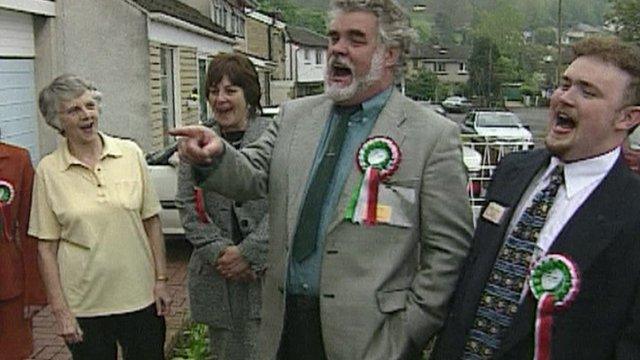
- Published14 October 2014
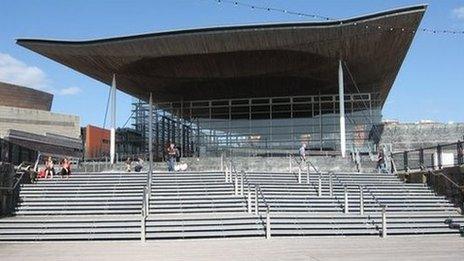
- Published23 September 2014
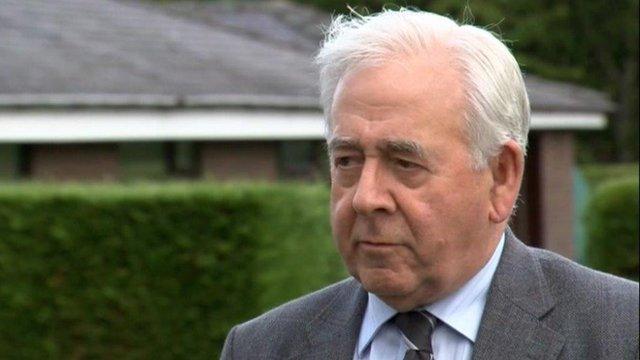
- Published19 September 2014
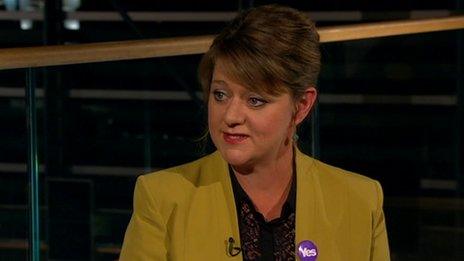
- Published13 October 2014
